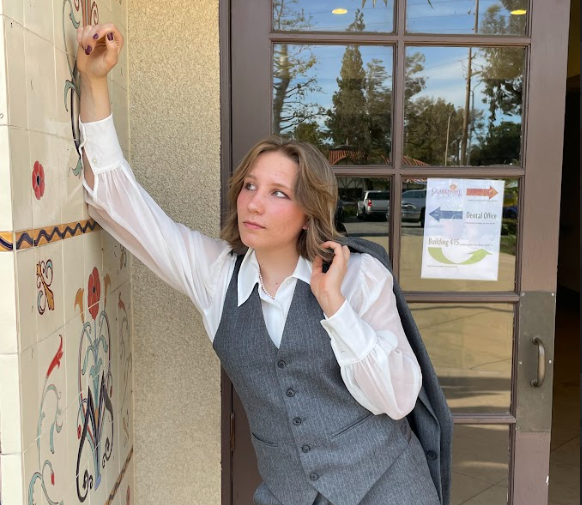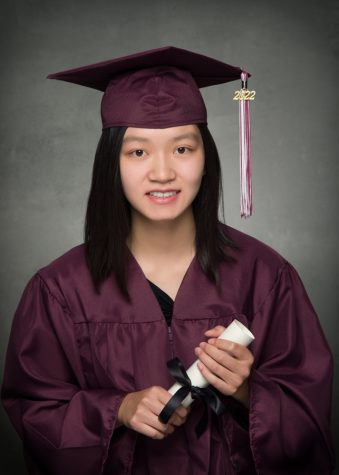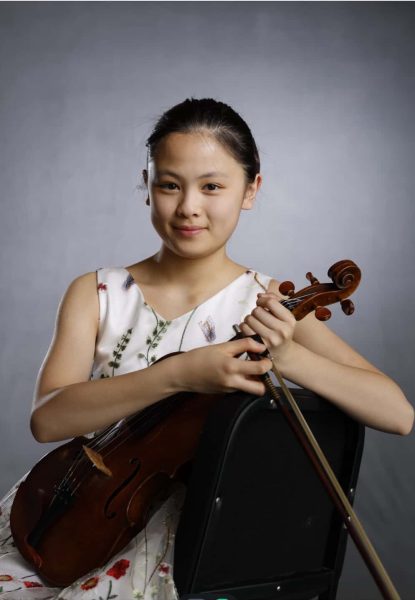Shang-Chi: Kicking off a new generation of superheroes
Shang-Chi and the Ten Rings, Marvel’s second theater release in the second phase of the MCU (Marvel Cinematic Universe), hit box offices on Friday, September 3rd, making a record $71.4 million, and is still going strong. As Marvel’s first Asian lead action movie, Shang-Chi has been exciting audiences and came as a welcomed contrast to increased anti-Asian-American violence that has been sweeping across the country. Shang-Chi stands apart from other Marvel movies across many aspects, including an almost complete disconnection from other MCU characters and storylines, an overarching theme of family, and lack of growth of character in the hero.
Shaun (Simu Liu) and his best friend Katie (Awkwafina) live a rather underperforming lifestyle, working as parking valets at a hotel and spending their nights in karaoke rooms in the city of San Francisco. That is, until one day on their way to work, Shaun’s past surfaces in an epic fight scene on a bus speeding through the streets of San Francisco. Shaun’s surprisingly incredible fighting skills are revealed as he single-handedly takes down a group of five assassins, as well his real name, Shang-Chi, and a dark past. Knowing the assassins were sent by his father, Shang-Chi and Katie take the next flight to Macau, a city in China, to warn Shang-Chi’s sister, Xu Xialing (Meng’er Zhang) of their father’s plot. The two fall right into the trap of their father, who is also the Leader of the Ten Rings, Xu Wenwu (Tony Leung). Wenwu then returns home with his children in tow to reveal to them his plan to rescue their long-dead mother from her old village, where he believes she is trapped. The siblings, along with Katie escape to warn the villagers of their father’s plot and are transported to a world made of myths and legends, that parallels earth, whose sole job is to keep a world-killing demon contained and unable to take over not only their world but the earth as well. Knowing nothing will stop him, the three newcomers prepare for confrontation, and soon are face-to-face with the Ten Rings. The fighting continues until Wenwu releases the age-old demon, who had been playing on Wenwu’s grief, leading him there through a tail of lies only to take his soul. The sudden introduction of this monster brings the Ten Rings and the villagers together to defend the earth in an epic battle.
Shang-Chi is Marvel’s first Asian superhero movie, with not only an almost completely Asian cast, but it is an homage to Chinese culture, myths, and legends. In the opening scenes, audiences are taken on a brief “historical” journey, looking into Shang-Chi’s father’s past and how his ownership over the Ten Rings, a magic-infused weapon, “influenced” the rise and fall of leadership in China and power across the world. As the movie progresses and fight scenes emerge, kung-fu and various weapons such as the rope dart and longbow, are all used by characters in the film and all have a Chinese origin. And when the main characters finally emerge into the Legendary village, they are bombarded with a sea of beautiful mythical creatures. These are significant details in normalizing accurate and meaningful representation of other cultures and make many in the audience feel seen.
Sophomores Alex Krauss and Natalie DeWees both avid marvel fans, watched Shang-Chi in theaters and felt like it exceeded their expectations.
“I thought the movie was pretty good,” sophomore Alex Krauss said, “I liked the dialog and that they [the writers and actors] added humor into the movie, into the lines, which I thought was pretty funny. I also liked the animals in the movie.”
This movie is truly visually stunning, filled with eye-catching visuals, gorgeous mythical creatures from Chinese myths and legends, most iconically the dragon, but also hulijing (the Nine-Tailed Fox), shishi (guardian lions), and many more. And just like any other Marvel movie, this one was filled with witty dialog and one-liners in between intense kung-fu filled fighting sequences.
“I really enjoyed it actually,” sophomore Natalie DeWees said. “I think it was a lot less intense than a lot of the Marvel movies recently have kind of been, and like it was kinda of separated from the rest of the universe, in it’s own little bubble doing its own little thing. But there were like Easter eggs and stuff, that connected it to like Dr. Strange, for example, and I thought that was really cool.”
And because it is almost completely separated from the rest of the MCU, the characters have very little involvement with others from the MCU, unlike many movies before it. Another significant difference from other Marvel movies is that Shang-Chi and the Ten Rings comes without an iconic twist. None of the “good guys” is actually the “bad guy,” no big power grab comes from somewhere unexpected, no main character has a tragic flaw or conflict of morals. Instead, the audience is taken on an emotional journey as the main character explores his relationship with his father and his father’s grief.
This family theme is an entirely different approach than what Marvel fans have seen with other heroes in the first wave of the MCU. Where relationships between father and son have been explored from afar with Thor and Tony Stark, this movie’s plot is based on familial relationships. A new turn for the MCU, as the other recent movie in the second wave, Black Widow, is also focused on the reconnection between family members and healing the broken bonds between them.
In comparison with previous MCU movies, in Shang-Chi and the Ten Rings, the main character exhibits less personal growth than in other movies. The growth that Shang does experience is his acceptance that he is the product of both of his parents. His growth continues as he explores his mother’s culture, 14 years after her death, and integrates it with his father’s teachings. While seeming like impactful character growth, its greatest effect is Shang’s fighting style and ability to match his dad in combat, rather than to his overall character.
Marvel’s first Asian superhero movie is just as exciting and gives hope of a promising future for the MCU. Shang-Chi’s big success promises greater representation in movies and shows filmmakers that audiences are interested in movies without a predominantly white cast. Shang-Chi and the Ten Rings is worth the watch, no MCU experience required.
Hello there! Our goal is to provide relavent, engaging journalism for readers of all ages. Your donation will support the student journalists of the Wolfpacket at Claremont High School, and will allow us to purchase equipment, print our monthly issues, and enter in journalism competitions. We appreciate your consideration!

Carrie Anne Little is a senior at Claremont High school, and the Editor in Chief for The Wolfpacket. She is a partial IB student, enrolled in the IB english...










